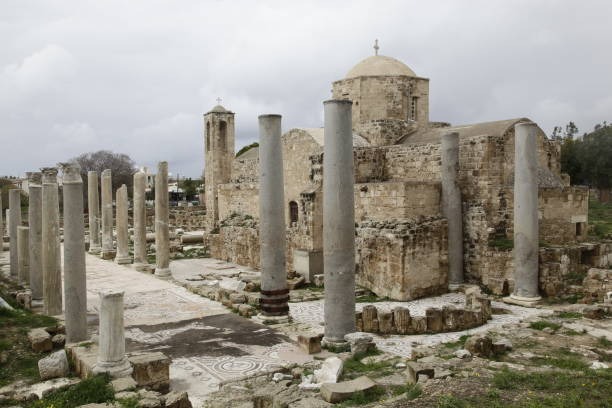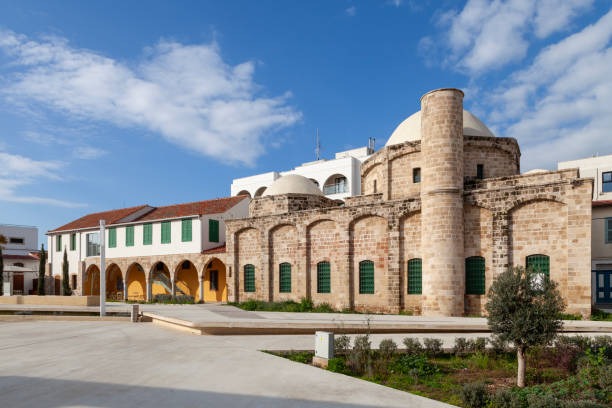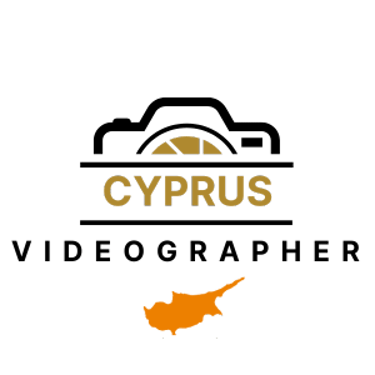Documenting Cyprus’s Cultural Heritage: Video as a Preservation Tool
It is this access that shows that documenting Cyprus’s cultural heritage is no longer limited to governments or academics and can be coached by any individual.
CYPRUS PHOTOGRAPHY AND VIDEOGRAPHY
10/16/20254 min read


Documenting Cyprus’s Cultural Heritage
Culture is more than history. Language unites people with their roots with the help of the traditions, art, and everyday life. Cyprus is a culturally rich place with firm Greek, Turkish, and Mediterranean influences. Villages, festivals, crafts, and even music all have their stories dating as far back as centuries. Nevertheless, the threat of forgetting these traditions exists because of the dynamism of modern life. This is why video, the audio-visual media, has become a great method of preserving identity and transmitting it to future generations.
Why Video Is a Powerful Tool
Nothing is better than pictures. It records motions, songs, and voices. It is an all-encompassing experience of the senses compared to a picture or diagram. This means more conservation to the researchers and the locals. Traditions are more appealing and available to younger generations. This shows why one of the most effective preservation methods today is the incorporation of video into preservation.
Traditional Festivals.
Cypriot festivals are expressive and implicative. Such gatherings bring groups of people together, whether it is village feasts of saints or harvest feasts. When they are recorded, it helps to preserve information that might otherwise be forgotten with time. Capture the songs performed by the traditional, the dances, and even the foods prepared can also on video. By these meetings, the latter generations can enjoy the traditions, though they might not be performed in the same way.
Local Crafts and Skills.
The Cypriot culture is to a large extent composed of handmade goods. In Lefkara they do lacework, in Famagusta they do pottery, and in the old fashion they do wine. Part of these skills are family-based. But as the younger generation is heading towards an age of modern careers, some of these skills will be forgotten. Video can capture both the end work and the process. This is why it becomes important to save the knowledge, and only the artisan skills will help to achieve it.
Music and Oral Traditions
Cyprus is a land of oral tradition. Values and history have been passed on through centuries of folk songs, poetry, and storytelling. Many of them may be lost unless they are recorded. Videotaping of performances and interviews with the older generations would ensure that this cultural treasure is preserved. Video is also simple to communicate with the world audience. This further burdens the concept of using the modern media.
Historical Buildings and Sites.
Along with the traditions that remain alive, there are innumerable historical sites in Cyprus. Ancient amphitheaters, Byzantine churches, and Venetian fortresses are scattered all over the island. They have always been recognized to be captured by photography, and video is a dynamic way of looking at them. As an example, drones allow full panoramic views of places that bring history to life in a manner that is realized through architecture.
The Role of Technology
Technology helps in easy documentation of it. Small communities can capture quality videos using cheap cameras, drones, and editing software. Such videos can be stored and shared everywhere over the internet using online resources such as YouTube or even cultural archives. It is this access that shows that documenting Cyprus’s cultural heritage is no longer limited to governments or academics and can be coached by any individual who possesses the passion and any dedication.
Educational Impact
Video is highly educative. Schools and colleges in Cyprus to teach the history, geography, and cultural studies can also use the recordings. Students will have an opportunity to experience traditions, and they will not only read about them in books. This is indicative of how not only preservation but also proactive learning on the part of the younger generation is facilitated by documenting Cyprus’s cultural heritage.
Difficulties and Duties.
Video is a powerful tool, yet it has its liabilities. The filmmakers must respect the cultural practices and must not distort them, but they must make requests where applicable. The traditions are also disastrous when they are excessively commercialized as entertainment. Knowing about these challenges, one can ensure that Documenting Cyprus’s Cultural Heritage is a valuable and respectful work.
Global Recognition
Video does not only preserve culture locally, but it contributes to its preservation on a global level. The Cypriot customs can be exported to the international festivals, museums, and online communities. This appreciation helps to boost cultural pride and can even boost tourism. The more it is exposed, Documenting Cyprus’s Cultural Heritage serves to open Cyprus to the rest of the world.
The Future of Cultural Preservation.
As technology intensifies, new technology such as virtual reality and 3D video will boost preservation activities. Simply because we are in a virtual Cypriot village, or we are at a digital festival, will people of the future visit the place or have something to attend to? The possibilities of such opportunities make documenting Cyprus’s cultural heritage a shifting practice with indefinite possibility.
Conclusion
Cypriot culture continues to exist. It tells the story of an island that has been changed by festivals and crafts and by music and historic sites in a multiplicity of ways. Video, the most efficient preservation tool, will be one that is added to a time when traditions are in danger of being lost. It makes a heritage for the upcoming generations by documenting the sights, sounds, and feelings; therefore, it is not just about memory but also about identity, pride, and belonging to what is yet to come.


FAQs
What do you think is better about video compared to photos in relation to preserving culture?
Video captures movement, sound, and atmosphere and is, hence, a more detailed and interactive record than photographic images.
Who can take part in filming a culture video in Cyprus?
Anyone can. The new technology on the one hand and the locals on the other allow all parties to give back.
Services
Professional video and photography for businesses.
CONTACT US
NEWSLETTER
EVERNEED AI LTD
+357 96166570
info@cyprusvideographer.com
Athalassas Avenue 143 - Apartment 201,
Strovolos 2015
Nicosia, Cyprus
© 2025. All rights reserved.
Powered by Skyrocket Marketers
